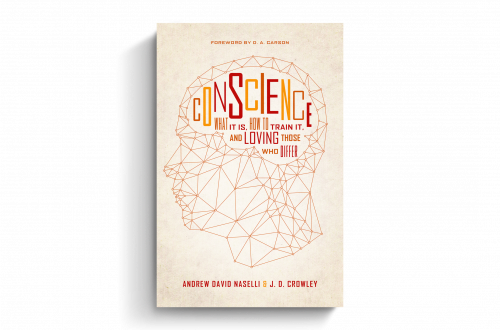 It just so happens that Dennis Hollinger has an article in the most recent issue of JETS on the issue of contraception: “The Ethics of Contraception: A Theological Assessment.” Hollinger’s article focuses on the differences between Roman Catholics and Evangelicals on the propriety of modern contraceptive technologies.
It just so happens that Dennis Hollinger has an article in the most recent issue of JETS on the issue of contraception: “The Ethics of Contraception: A Theological Assessment.” Hollinger’s article focuses on the differences between Roman Catholics and Evangelicals on the propriety of modern contraceptive technologies.
Evangelicals tend to allow for the use of birth control devices by married couples, so long as those methods are truly contraceptive and are not abortifacient. Roman Catholics, however, oppose all use of contraception—even those methods that are not abortifacient. Hollinger gives a brief but helpful history of why Evangelicals and Roman Catholics have differed on this issue.
Hollinger also sets forth a theological rationale for the licit use of non-abortifacient birth control devices. Is this the last word on the contraception debate? Certainly not. But if you want to understand the historic differences between Evangelicals and Roman Catholics on this issue, this is a good place to start. (For those who are interested, I also discuss this issue at some length in chapter 5 of my book, What Is the Meaning of Sex?.)




3 Comments
Henry Bish
What always fails to persuade me in articles like this is that nobody defending contraception seems willing to get specific about which “non-selfish” reasons they use it for, because there are a multiplicity of reasons why the use of contraception is not good for the health of the church. The burden of proof is on those who wish to limit their fruitfulness.
I come away thinking it is only lip-service when the author says that using contraception must not be “to justify our self-centredness or sexual appetites”. Really? Why is it that those who are big on advocating “stewardship” almost always seem to choose smaller families? Why does “stewardship” always seem to mean being *less* fruitful? It is an odd kind of stewardship. Is this stewardship or selfishness incognito?
It would be helpful in assessing the piece if the author would disclose how many children he desires to have.
Surely the truth is that most use of contraception in the church today is selfishness cloaked as “stewardship”. Unless the sin of selfish use of contraception is firmly dealt with I cannot trust such articles to help the people of God towards godliness. We will just end up going away with new words to excuse our selfishness like “stewardship”.
Chris Ryan
Great piece, Denny, thanks for sharing, Hollinger is quite thoughtful. I have 2 reactions. The first is that I don’t think the Catholic position on contraception articulated in Humanae Vitae can be fully *appreciated* without articulating the Vatican’s simultaneous disapproval of artificial reproduction. The Catholic Church’s opposition to both is ultimately of the same seed.
My second reaction is that Hollinger seems defensive abt the appropriateness of pleasure in marital sex. In light of Gen 2:18, the marital union is meant to be pleasurable. The ‘unitive’ purpose of sex in marriage is a twin–not subordinate–goal to procreation. That is, procreation need not be in the offing for marital sex to be proper. If God had intended Eve’s companionship to be purely platonic, He could have sent a male–all the better to help Adam carry rocks & hunt game–but b/cs Adam needed more than physical help, God sent a woman who could complement him. Hence in the context of MARRIAGE we should not be squeamish, or ashamed, or defensive of sexual pleasure…I feel like in the last few years some Protestants are moving closer to the Catholic position on this & I find that unfortunate. I’m not sure if this is a reaction to secular culture or something else, but I fear what it means for Christians & the marital institution.
Don Johnson
The author concludes that sexual congress has 4 purposes of one flesh union, procreation, love, and pleasure and that these four purposes can never be isolated from each other. I find this too similar to Roman Catholic arguments.
My understanding is that one flesh in the Tanakh refers to being related, that is, having sex means an Israelite should treat their spouse as family.
Procreation, (expressing) love, and pleasure are obviously aspects of sex as a general statement, but they most certainly can be isolated from each other. For example, one spouse can pleasure the other as a way of expressing love, but no reciprocation of giving pleasure is required as long as this decision is mutual per 1 Cor 7. In fact, making such into requirements is the antithesis of Christian freedom; yes, a mutual pleasure party can be the norm and normally expected, it is just not a requirement, per se. Similarly, sex can certainly happen with no chance of procreation or with a chance of procreation, as long as the decision is mutual.